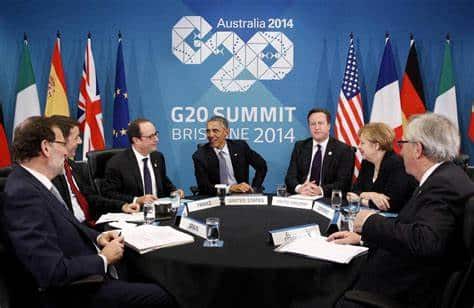The G20 or Group of 20, founded in 1999, is an international forum, that addresses major issues related to the global economy, climate change mitigation, sustainable development, and financial matters relating to the world’s largest economies.
Read More: https://tdznkwjt9mxt6p1p8657.cleaver.live/indonesia-earthquake-results-46-casualties/
India will assume the G20 Presidency from the 1st of December this year from Indonesia and it will for the first time that the world’s largest democracy will convene the G20 Leaders’ Summit in the country in 2024.
In what became a headline, most industrialized world leaders issued a joint declaration condemning Russia’s war with Ukraine which has killed thousands of people, threatened the world peace and order situation and jeopardized the global economy after the pandemic.
It was reported that Indonesian President and G20 host Joko Widodo stated the strongest condemnation of Russia’s aggression and demanded its complete and unconditional withdrawal from the territory of Ukraine. However, some of the language used in the declaration also showed disagreements among members on issues around Ukraine. President Joko Widodo acknowledged this debate at his press conference at the end of the two-day summit in Bali.

The 17-page document has pointed to the growing international discontentment with Russia and is a crucial winning point for the United States and its allies who have pushed to end the summit with a strong condemnation of Russia. The document also pinpointed to a minor rift among member states with other views and different assessments of the situation and sanctions.
Role of China in the G20 summit
It was reported that the statement was passed after the news of Russian missile attack in Poland arrived, which initiated an emergency meeting in Bali to explore the explosion.
US President Joe Biden promised to figure out exactly what happened after a Russian-made missile fell inside the borders of a NATO ally.
While India is seen to have distanced itself from Russia, China’s position is less clear. Even though Chinese leader Xi Jinping has called for a ceasefire and agreed to support peace by opposing the use of nuclear weapons. When discussing Ukraine with leaders from the US, France, and other nations, Xi invariably used terms such as the ‘Ukraine crisis’ or the Ukraine issue and avoided the word ‘invasion’ or ‘war’.
While Chinese Ministry opposed the use of nuclear weapons and reiterated the use of dialogue in subsequent meetings, it remains unexplained why China has amplified Russian propaganda blaming the conflict on NATO and the US while decrying the sanctions as ‘illegal’. China’s foreign officials also highlighted the position of Russia by reaffirming Russia’s rational and responsible attitude towards the nonuse of nuclear weapon stance.
India’s position in the G20 sumit
In the Tuesday summit meeting, the Russian counterpart Sergey Lavrov witnessed the growing isolation towards Putin’s war and the difficulties caused due to it.
On Friday, White House Press Secretary Karine Jean-Pierre stressed how India played an essential role in negotiating the summit’s declaration and how Prime Minister Narendra Modi’s statement that ‘today’s era must not be of war’ resonated with the G20’s declaration.
While China’s stance on Ukraine and Russia remains ambiguous, observers have noted a more obvious tilt from India’s side and the greater role New Delhi is willing to play in engaging talks with all sides. PM Modi used the expression when he met President Putin in Samarkand on the sidelines of the Shanghai Cooperation Organisation Summit on September 16.

On Tuesday, Indian Prime Minister Narendra Modi opened his remarks by calling for a way to return to the path of ceasefire and diplomacy in Ukraine. Experts from the field of global diplomacy note that India has the power to act as a bridge between the Western powers and Russia but we can also discern India disassociating itself from Russia in many ways.













